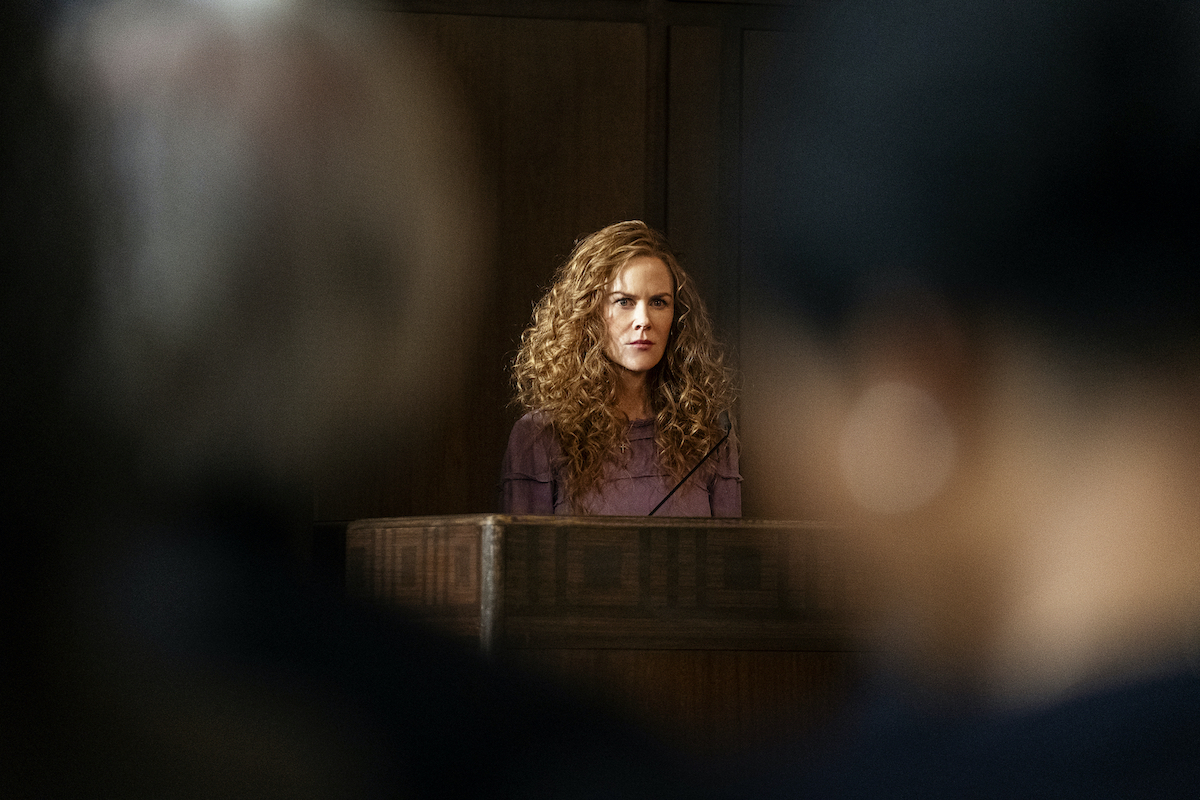Let’s Unpack the Final Episode of The Undoing

Spoilers for the final episode of The Undoing!
In HBO’s The Undoing, Hugh Grant plays Jonathan Fraser, a wealthy pediatric oncologist who is suspected of brutally killing his mistress. From the start, every sign points to Fraser’s guilt. He was at Elena’s art studio just before and also just after she died. He slept with her just before her murder, leaving his DNA all over the crime scene. His own mother described his sociopathic inability to experience guilt or trauma. He’s lied about so many other elements of his life that it would be impossible to believe him based solely on his word. Also, there’s the fact that he fled the scene of the crime and hid from his family and the police.
Jonathan was so obviously guilty that it felt like he had to be innocent. That’s how mysteries work. Just by the very existence of the show and the fact that we’re spending six hours dedicated to the subject, his guilt was so glaring that there was no way he could be the killer. Except then he was.
It turned out that the entire series was a big red herring. Every episode had about a dozen twists, putting focus on other suspects: Grace (Nicole Kidman), Elena’s husband Fernando–we were even meant to consider the possibility that Henry, the Fraser’s 10-year-old son, might have travelled halfway across Manhattan to bludgeon his dad’s girlfriend to death in the middle of the night. All of these, at least at moments, seemed more realistic than the idea that the series would land at the boringly obvious answer of it being the sociopathic wealthy lover.
Me every 5 minutes: “I think I’ve solved the murder”
The Undoing: #TheUndoing pic.twitter.com/Yogd3cFA2I
— Guy P. Football (@Guy_P_Football) November 30, 2020
And yet I found myself weirdly satisfied by the ending. Not the ending ending, with Grace’s witness stand subterfuge and a ludicrous private helicopter chase that was entirely distracting by just making us wonder exactly how wealthy Donald Sutherland’s character can possibly be–but the revelation that Jonathan was the killer was so simple that it managed to be strangely exciting, mostly because of how realistic that choice was in the midst of a series that was anything but.
Me accusing everyone but Jonathan the entire time:
#TheUndoing pic.twitter.com/YyF4Cr7MWE
— Holly Jolly Neighborhood Thot Pocket 🎄🎅🎁☃️ (@thotpocket8) November 30, 2020
I know not everyone feels the same way I do about the show’s ending. Part of that (in addition to everyone having different tastes and being entitled to their own opinion, obviously) might be due to The Undoing’s attempts to convince us that we were watching major Prestige TV. Between the mega-star cast and the lifestyle porn background of extreme opulence and gorgeous coats, the show took on an air of importance that really only served to get in the way of its audience’s ability to enjoy it for what it was: a ludicrously constructed, pulpy murder pageant.
The Undoing is not truth in any sense but it is likely to appeal to true crime fans, in large part because of its ultimately basic ending. People are drawn to the genre of murder (be it true crime podcasts or film thrillers and everything in between) for a variety of reason but for many–myself included–it offers a striking dichotomy of sensational stories and tragic mundanity. We all know that the most obvious suspect in real-life murders is usually the culprit, and more often than not, this is a person’s husband or boyfriend. It-could-happen-to-you is the backbone message of the true crime genre and Grace is a prime ICHTY protagonist.
Grace didn’t kill Elena. She wasn’t involved in her death or even in her life in any mysterious way. She didn’t even really knowingly cover up her husband’s crime. She is a woman who, despite her intelligence and her expertise in issues of human psychology, ignored all the warning signs that this person she was so close to was so dangerous.
Unfortunately, and unlike true crime stories, this doesn’t get to be Elena’s story. Instead, she ends up being barely more than the one-dimensional “unstable” vixen Jonathan kept trying to paint her as. Instead, this is Grace’s story, and she gets the revenge fantasy ending, from secretly betraying her husband in court to leaving him standing on the ledge of a bridge without even saying a word to him.
This is an over-the-top, fantastical ending–tacked on after a perfectly banal conclusion–making it well suited to this ridiculous show. Was it uneven? Sure, but that’s the charm for a series that never met a twist it didn’t embrace wholeheartedly. The key to enjoying The Undoing is not to overthink it, not to deify it, and to just sit back, go along for the ride, and marvel at all the beautiful coats.
(image: Niko Tavernise/HBO)
Want more stories like this? Become a subscriber and support the site!
—The Mary Sue has a strict comment policy that forbids, but is not limited to, personal insults toward anyone, hate speech, and trolling.—
Have a tip we should know? tips@themarysue.com